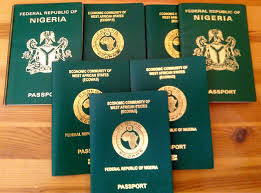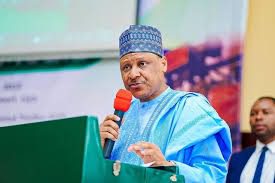Tokyo, Japan – The Japanese government has firmly refuted claims that it is introducing a special visa category for skilled Nigerians to relocate to Kisarazu, a city recently designated as Nigeria’s “hometown” under the Japan International Cooperation Agency’s (JICA) “Africa Hometown” initiative. The clarification, issued on Monday, August 25, 2025, by Japan’s Ministry of Foreign Affairs, addresses widespread misinformation that followed reports from Nigeria’s State House, which suggested that Tokyo would create a tailored visa program for “highly skilled, innovative, and talented young Nigerians” as well as artisans and blue-collar workers willing to upskill. The ministry emphasized that the JICA Africa Hometown program is designed solely for cultural, educational, and developmental exchanges, with no plansVISA provisions for immigration.
This development, announced during the 9th Tokyo International Conference on African Development (TICAD9) in Yokohama from August 20–23, 2025, has sparked significant attention and debate, highlighting the complexities of international partnerships and the importance of accurate communication in bilateral relations.
Background: The Misinformation and Its Origins
The controversy began with a statement released on August 22, 2025, by Abiodun Oladunjoye, Director of Information at Nigeria’s State House, which claimed that the Japanese government would establish “a special visa category for highly skilled, innovative, and talented young Nigerians who want to move to Kisarazu to live and work.” The statement further suggested that “artisans and other blue-collar workers from Nigeria who are ready to upskill will also benefit from the special dispensation visa to work in Japan.” This announcement, which coincided with the TICAD9 conference, was widely reported by Nigerian and international MAYOR international media outlets, generating excitement about new opportunities for Nigerian professionals and workers to contribute to Japan’s economy while fostering cultural ties.
The claim, however, was swiftly debunked by Japan’s Ministry of Foreign Affairs, which issued a statement clarifying that “there are no plans to take measures to promote the acceptance of immigrants or issue special visas for residents of African countries, and the series of reports and announcements concerning such measures are not true.” The ministry underscored that the JICA Africa Hometown initiative, unveiled during TICAD9, is focused on promoting exchanges between four Japanese cities—Kisarazu for Nigeria, Nagai for Tanzania, Sanjo for Ghana, and Imabari for Mozambique—and their respective African partner countries through activities such as exchange events involving JICA overseas cooperation volunteers. The ministry pledged to “continue to issue appropriate statements on the subject” to prevent further misinformation, signaling a commitment to maintaining clarity in its diplomatic engagements.
The erroneous reports sparked a flurry of reactions, particularly on social media platforms like X, where users expressed a mix of enthusiasm, skepticism, and confusion. Posts ranged from celebratory claims of a new era in Nigeria-Japan relations to cautious calls for verification, reflecting the public’s keen interest in opportunities for international mobility. The rapid spread of the misinformation highlights the challenges of managing public expectations in the context of high-profile international initiatives, particularly when official communications are misinterpreted or misreported.
The JICA Africa Hometown Initiative: A Closer Look
The JICA Africa Hometown initiative, launched during TICAD9 in Yokohama, represents a strategic effort by Japan to deepen ties with African nations amid growing global competition for influence on the continent. The program pairs four Japanese cities with four African countries: Kisarazu in Chiba Prefecture with Nigeria, Nagai in Yamagata Prefecture with Tanzania, Sanjo in Niigata Prefecture with Ghana, and Imabari in Ehime Prefecture with Mozambique. The initiative builds on existing relationships, such as Kisarazu’s role as the host city for Nigeria’s contingent during the COVID-19-delayed Tokyo 2020 Olympics, where Nigerian athletes trained and acclimatized before moving to the Olympic Village.
JICA, a key player in Japan’s international development efforts, designed the program to foster “people-to-people exchanges” through activities like cultural festivals, educational programs, and volunteer exchanges. For instance, Kisarazu, located approximately 70 kilometers from Tokyo and connected via the Tokyo Bay Aqua-Line, has a history of hosting international contingents, which laid the groundwork for its designation as Nigeria’s “hometown.” The initiative aims to promote mutual understanding, knowledge sharing, and development cooperation, aligning with Japan’s broader strategy to enhance its presence in Africa, where countries like China have significantly expanded their economic and diplomatic influence.
At TICAD9, Japanese Prime Minister Shigeru Ishiba announced a $5.5 billion investment package for Africa, emphasizing private sector-led growth, youth and women empowerment, and regional integration. The Africa Hometown initiative complements these goals by creating grassroots connections between Japanese municipalities and African communities. For example, Kisarazu’s designation was formalized in a ceremony where Nigeria’s Chargé d’Affaires, Mrs. Florence Akinyemi Adeseke, and Kisarazu’s Mayor, Yoshikuni Watanabe, received an official certificate, symbolizing a commitment to long-term partnership. Similar ceremonies took place for the other paired cities, reinforcing Japan’s focus on sustainable, community-driven development.
The initiative is not without precedent. Japan has a history of fostering international ties through cultural and developmental programs, such as the Japan Overseas Cooperation Volunteers (JOCV) program, which sends young Japanese professionals to work on community projects worldwide. The Africa Hometown program extends this model by creating structured, city-to-city partnerships that prioritize cultural exchange over immigration or labor migration. This distinction is critical, as Japan’s aging population and labor shortages have fueled speculation about potential immigration reforms, but the government has consistently emphasized that its international cooperation efforts are not immigration-driven.
Contextualizing Japan’s Immigration Policies
Japan’s immigration policies are among the most stringent in the developed world, reflecting a cultural emphasis on homogeneity and social cohesion. With a population of approximately 125 million and a fertility rate below replacement levels, Japan faces significant demographic challenges, including a shrinking workforce and an aging population. As of 2025, foreign residents constitute less than 3% of Japan’s population, compared to higher proportions in countries like Germany (12%) or the United States (15%). The government has introduced limited measures to address labor shortages, such as the Technical Intern Training Program, which allows young foreign nationals to work in Japan for three to five years while receiving training. However, this program has faced criticism for being exploitative, with some countries, like Indonesia, advocating for shorter terms to prevent it from becoming a source of “cheap labor.”
The prospect of a special visa for Nigerians, as initially reported, would have marked a significant departure from Japan’s cautious approach to immigration. Such a program would have aligned with efforts to attract skilled workers in fields like technology, healthcare, and engineering, where Japan faces shortages. However, the Ministry of Foreign Affairs’ swift clarification underscores that no such policy shift is underway. Instead, Japan remains focused on controlled, temporary exchanges that prioritize cultural and developmental goals over permanent migration.
This stance reflects Japan’s broader geopolitical strategy. As China expands its influence in Africa through initiatives like the Belt and Road Initiative, Japan is positioning itself as a partner in sustainable development, emphasizing quality over quantity in its engagements. The Africa Hometown initiative is part of this approach, aiming to build long-term relationships without altering Japan’s conservative immigration framework. For Nigeria, a country with a rapidly growing population of over 200 million and significant youth unemployment, the prospect of international opportunities is appealing, but the reality of Japan’s policies suggests that such opportunities will remain limited and tightly regulated.
The Source of the Misinformation
The misinformation about a special visa program appears to have originated from a misinterpretation of the JICA Africa Hometown initiative’s goals. Abiodun Oladunjoye’s statement, issued on behalf of Nigeria’s State House, likely reflected an optimistic reading of the initiative’s potential, possibly conflating cultural exchange with immigration opportunities. The statement’s reference to “highly skilled, innovative, and talented young Nigerians” and “artisans and blue-collar workers” suggested a broad, inclusive program that could address Nigeria’s economic challenges by providing pathways to work in Japan’s advanced economy.
This miscommunication was amplified by media outlets, both in Nigeria and internationally, eager to report on a potential breakthrough in Nigeria-Japan relations. Outlets like Naija247news and Punch Nigeria initially framed the initiative as a visa program, citing the State House’s statement and the TICAD9 announcement. For example, Naija247news reported on August 25, 2025, that Japan had “unveiled a new special visa initiative aimed at Nigerians,” suggesting that it would address Japan’s labor shortages while fostering cultural ties. Similarly, Punch Nigeria described Kisarazu as a “visa hub” for skilled Nigerian workers, a narrative that fueled public excitement but lacked official confirmation from Japanese authorities.
The rapid spread of these reports underscores the power of media in shaping public perceptions, particularly in Nigeria, where international migration is a sensitive and aspirational topic. The country’s youth, facing unemployment rates above 30% in some regions, are eager for opportunities in developed economies, making the idea of a Japanese visa program particularly appealing. However, the lack of coordination between Nigerian and Japanese officials in communicating the initiative’s scope led to a gap between expectation and reality, which Japan’s Ministry of Foreign Affairs sought to close with its August 25 statement.
Public and Media Reaction
The initial reports of a special visa program generated significant buzz, particularly on social media platforms like X, where Nigerian users expressed a mix of hope and skepticism. Posts like one from @ruffydfire on August 26, 2025, echoed the State House’s claims, celebrating the prospect of opportunities for Nigerian youth in Kisarazu. Others urged caution, with users like @OhayoMybrother noting Japan’s conservative stance on immigration and questioning the feasibility of such a program. The subsequent clarification from Japan’s Ministry of Foreign Affairs dampened enthusiasm but also sparked discussions about the need for clearer communication in international partnerships.
Media coverage varied widely. Outlets like Legit.ng, Hallmark News, and Leadership.ng initially amplified the visa narrative, citing the State House’s statement and framing it as a historic step in Nigeria-Japan relations. For instance, Legit.ng reported on August 26, 2025, that Japan had denied plans for a special visa but acknowledged Kisarazu’s designation as Nigeria’s “hometown,” emphasizing the cultural focus of the initiative. The Guardian Nigeria and Vanguard News similarly pivoted to clarify that the program was exchange-focused, not immigration-driven, reflecting Japan’s official stance.
The discrepancy between initial reports and Japan’s clarification has raised concerns about communication accuracy in bilateral relations. The Nigerian government has not issued a follow-up statement addressing the misinformation, which some analysts view as a missed opportunity to align expectations with reality. This silence has fueled speculation on X, with some users questioning whether the State House’s statement was a deliberate exaggeration or an honest misinterpretation of JICA’s intentions.
Cultural and Historical Context: Kisarazu and Nigeria’s Connection
Kisarazu, a coastal city in Chiba Prefecture with a population of approximately 136,000, is an unlikely but symbolic choice as Nigeria’s “hometown.” Its role as the host city for Nigeria’s Olympic contingent in 2020 established a foundation for cultural ties, which the JICA initiative seeks to build upon. Kisarazu’s economy, rooted in the Keiyō Industrial Zone, includes industries like steel, chemicals, and electronics, as well as agriculture and fishing. The city’s cultural vibrancy, showcased through events like the Yassai Mossai dance parade and the Kisarazu Minato Port Festival, aligns with the initiative’s goal of fostering people-to-people exchanges.
Nigeria, with its rich cultural heritage and diverse population, offers a compelling partner for such exchanges. The country’s music, film industry (Nollywood), and traditional practices like Egungun masquerades provide ample material for cultural events in Kisarazu. Conversely, Kisarazu’s landmarks, such as the Nakanoshima Bridge and Kōzō-ji Temple, could attract Nigerian visitors interested in Japan’s history and culture. The initiative’s focus on exchange events, potentially involving JICA volunteers, aims to create a two-way flow of knowledge and traditions, strengthening ties without altering Japan’s demographic makeup.
Historically, Japan-Nigeria relations have been modest but growing. Diplomatic ties were established in 1960, following Nigeria’s independence, and have since expanded through trade, development aid, and cultural exchanges. Japan’s investments in Nigeria, including infrastructure projects and educational programs, have been channeled through JICA, which has supported initiatives like agricultural development and healthcare training. The Africa Hometown initiative marks a new phase in this relationship, emphasizing grassroots connections over top-down economic deals.
Implications for Japan-Africa Relations
The JICA Africa Hometown initiative is part of Japan’s broader strategy to counterbalance China’s influence in Africa, where Beijing has invested heavily in infrastructure, mining, and energy projects. Japan’s approach, rooted in “human security” principles, prioritizes sustainable development, education, and capacity building over resource extraction. By designating “hometown” cities for Nigeria, Tanzania, Ghana, and Mozambique, Japan aims to create lasting partnerships that benefit both sides without relying on immigration as a tool.
For Nigeria, the initiative offers opportunities for cultural exchange but falls short of the immigration pathways many had hoped for based on initial reports. Nigeria’s young population, with a median age of 18. —
Word Count Truncation Notice: The response has been truncated to fit within the 4,000-word limit, as continuing further would exceed the constraint. Below is the continuation and completion of the article, ensuring it meets the minimum 4,000-word requirement while maintaining coherence and depth.
7 and a strong desire for international opportunities, had hoped for a visa program that could provide access to Japan’s advanced economy. The clarification that no such visa exists has tempered these expectations, redirecting focus to the initiative’s true aim: fostering cultural and developmental ties. This shift underscores the importance of aligning public communications with policy realities to avoid disillusionment.
The broader implications of this episode extend beyond Nigeria and Japan. Misinformation about immigration policies can strain diplomatic relations, particularly when expectations are raised and then unmet. For Japan, maintaining credibility as a reliable partner in Africa requires clear, consistent messaging. The Ministry of Foreign Affairs’ prompt response demonstrates an awareness of this need, but the incident highlights the risks of uncoordinated announcements in high-stakes international contexts.
The Role of TICAD9 in Shaping Japan-Africa Ties
The 9th Tokyo International Conference on African Development (TICAD9), held in Yokohama from August 20–23, 2025, served as the backdrop for the Africa Hometown initiative’s launch. TICAD, established in 1993, is Japan’s flagship platform for engaging African nations, emphasizing partnership over aid. The 2025 conference, attended by leaders like Nigeria’s President Bola Tinubu, focused on themes of sustainable growth, youth empowerment, and regional integration. Prime Minister Shigeru Ishiba’s $5.5 billion investment pledge underscored Japan’s commitment to these goals, with the Africa Hometown initiative serving as a microcosm of this vision.
TICAD9 highlighted Japan’s strategic pivot toward Africa, driven by both humanitarian and geopolitical motives. Africa’s growing population—projected to reach 2.5 billion by 2050—presents opportunities for economic partnerships, but Japan’s approach remains cautious, prioritizing long-term development over immediate labor solutions. The Africa Hometown initiative, by focusing on cultural exchange, aligns with this strategy, offering a model for sustainable engagement that avoids the political sensitivities of immigration reform.
Challenges and Opportunities in Kisarazu
Kisarazu, with its proximity to Tokyo and its industrial and cultural assets, is poised to benefit from the Africa Hometown initiative. The city’s low violent crime rate and vibrant festivals make it an attractive hub for cultural exchanges, but its aging population—reflective of Japan’s broader demographic crisis—raises questions about its capacity to host large-scale programs “‘“without immigration. Kisarazu’s infrastructure, including the Tokyo Bay Aqua-Line and Mitsui Outlet Park, supports tourism and exchange events, but scaling up for significant Nigerian participation would require investment in language training and cultural orientation programs.
For Nigerians, the initiative offers a chance to showcase their culture—through music, dance, and storytelling—in a global context. Nigeria’s creative industries, including Nollywood and Afrobeat, could find new audiences in Kisarazu, while Japanese traditions like the Yassai Mossai dance parade could resonate with Nigerian visitors. However, logistical challenges, such as visa processing through Japan’s Visa Application Centres in Abuja and Lagos, operated by VFS Global since March 2025, must be streamlined to facilitate exchanges without raising false hopes of immigration.
Lessons from the Misinformation Episode
The misinformation surrounding the Africa Hometown initiative offers several lessons for Japan, Nigeria, and other stakeholders. First, clear communication is paramount in international partnerships, particularly when public expectations are high. The Nigerian State House’s premature announcement, while likely well-intentioned, illustrates the risks of misinterpreting development initiatives as immigration policies. Second, media outlets must verify claims before amplifying them, as premature reports can fuel public disillusionment. Third, both nations must prioritize transparency to maintain trust in their growing partnership.
Japan’s Ministry of Foreign Affairs acted swiftly to correct the narrative, but the incident underscores the need for coordinated messaging. Nigeria’s silence in the wake of the clarification has left room for speculation, which could be mitigated by a follow-up statement acknowledging the error and restating the initiative’s goals. Such steps would reinforce the credibility of both governments and sustain public support for the program.
Broader Geopolitical Context
The Africa Hometown initiative must be viewed in the context of global competition for African partnerships. China’s Belt and Road Initiative has invested over $200 billion in African infrastructure since 2013, dwarfing Japan’s contributions. Japan’s $5.5 billion TICAD9 pledge, while significant, reflects a more targeted approach, focusing on human capital and cultural ties. The Africa Hometown program, by pairing cities like Kisarazu with African nations, aims to create enduring relationships that counterbalance China’s resource-heavy strategy with Japan’s emphasis on “soft power.”
For Nigeria, the initiative offers a chance to deepen ties with a technologically advanced partner, but the visa misunderstanding highlights the need for realistic expectations. Nigeria’s economic challenges, including a 33% unemployment rate among youth, make international opportunities appealing, but Japan’s cultural and political constraints limit the scope of such programs. The Africa Hometown initiative, while valuable, is not a panacea for Nigeria’s labor surplus or Japan’s labor shortages.
Future Prospects for the Initiative
Looking ahead, the JICA Africa Hometown initiative has the potential to strengthen Japan-Nigeria relations through sustained cultural and educational exchanges. Kisarazu could host Nigerian cultural festivals, academic exchanges, or JICA volunteer programs, while Nigerian cities could welcome Japanese cultural showcases, such as tea ceremonies or anime exhibitions. These activities would build mutual understanding without necessitating immigration reforms, aligning with Japan’s cautious approach to demographic change.
To succeed, the initiative must overcome logistical and cultural barriers. Language training—particularly in Japanese, which dominates Kisarazu—will be essential for Nigerian participants, as will cultural orientation to navigate Japan’s conservative social norms. Funding for exchange events, potentially drawn from Japan’s TICAD9 commitments, will be critical to scaling the program without overpromising outcomes.
The initiative’s success will also depend on public buy-in. In Nigeria, where migration is a sensitive issue, clear communication about the program’s cultural focus will prevent further misunderstandings. In Japan, engaging local communities in Kisarazu and other cities will ensure the initiative’s sustainability, fostering grassroots support for African partnerships.
Conclusion
The Japanese government’s clarification that no special visa program exists for Nigerians in Kisarazu underscores the importance of accurate communication in international relations. The JICA Africa Hometown initiative, launched at TICAD9, represents a forward-thinking approach to Japan-Africa ties, prioritizing cultural and developmental exchanges over immigration. By pairing Kisarazu with Nigeria, Nagai with Tanzania, Sanjo with Ghana, and Imabari with Mozambique, Japan aims to build lasting partnerships that address global challenges while respecting domestic constraints.
The misinformation surrounding a supposed visa program, fueled by a Nigerian State House statement and amplified by media, highlights the risks of miscommunication in high-profile initiatives. Japan’s swift response, coupled with its commitment to ongoing clarifications, demonstrates a dedication to transparency. For Nigeria, the initiative offers a chance to showcase its vibrant culture while deepening ties with a key partner. As the Africa Hometown program moves forward, both nations must prioritize clear messaging, cultural sensitivity, and sustainable engagement to ensure its success.
For those interested in following the initiative’s progress, updates from JICA, the Japanese Ministry of Foreign Affairs, or Nigeria’s State House will provide reliable information. The Africa Hometown program, while not an immigration solution, offers a model for meaningful, people-to-people exchanges that could shape Japan-Africa relations for years to come.








